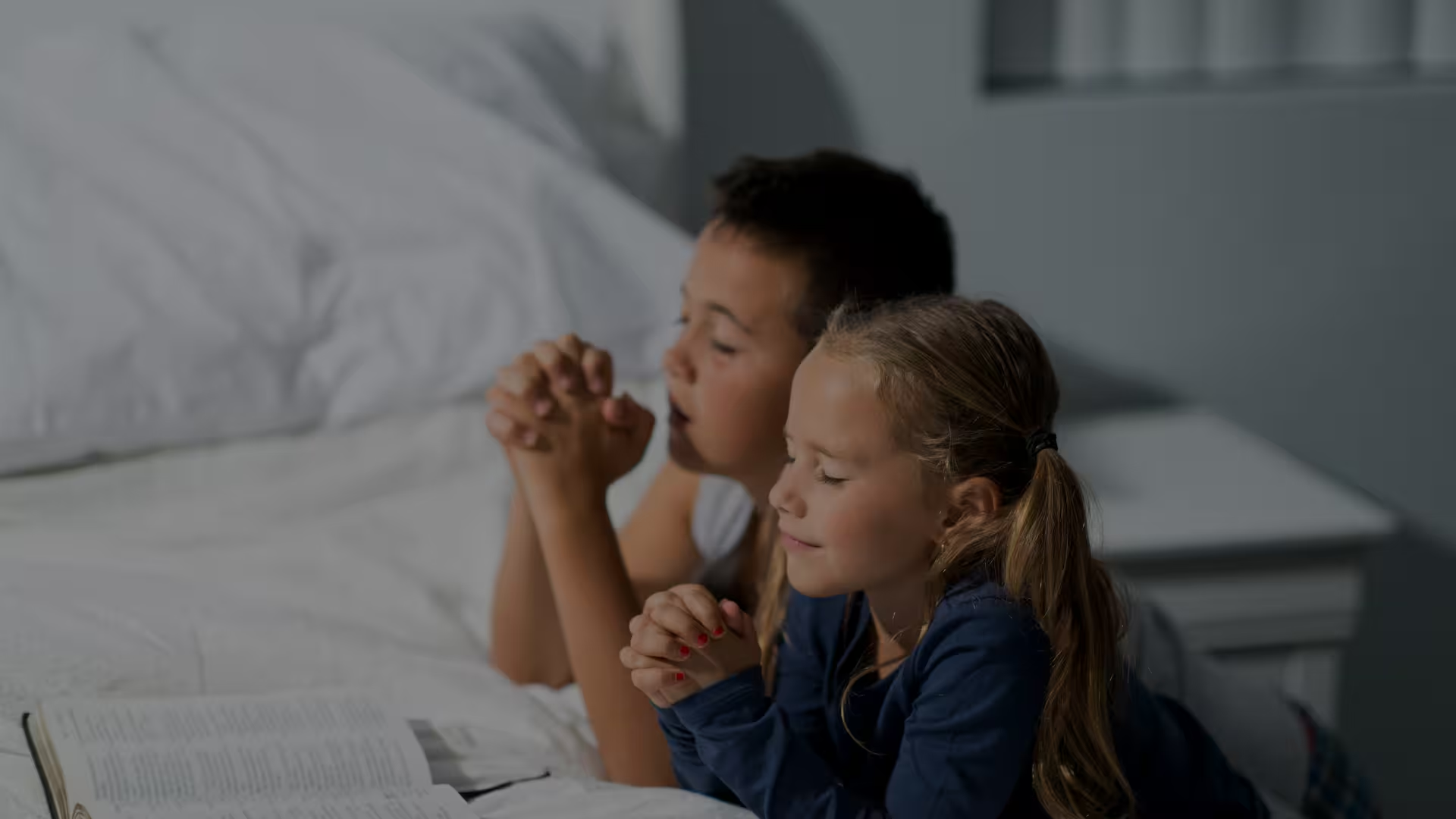You hear it all around you, "I just want them to be happy." It’s many a parent’s desire for their kids, but it’s worth asking if this is the right goal.
Think over your adult life. I’m willing to bet that happiness has been fleeting. Maybe you catch a glimpse when you see your child running across the backyard, hair flying behind her as she chases a puppy. Or it might be that moment when your children are all singing along to a sweet song on your way home from a beautiful wedding reception.
What we truly want for our kids likely looks closer to contentment. It is of more depth and value than happiness. It says that no matter the circumstances, my foundation is in the Lord and His goodness is secure.
So why do we give our kids the cheap version? We are at risk of robbing our kids of their contentment when we teach them that only happiness is worthy of their pursuit.
Stop Shielding Your Kids From Unhappiness
A couple of years ago, my brother Jack experienced what I think of as a watershed moment that changed his life. He’d had decades of serious health problems, but something happened that no longer allowed him to live independently. Even living with a family member was ruled out.
As a young man living in a residential nursing facility, he has struggled with his circumstances. One of the most powerful conversations I’ve ever been a part of was when he told me that he was working on contentment. He had considered all the trials Paul the apostle had been through and told me that Paul had nothing like the staff at the nursing home to ease his pain. I was moved by his perspective.
The facility where my brother lives is a 35-minute drive from my home, and during the summers, I can bring my kids along for our weekly visits. It’s easier not to bring my kids. They get bored, they are sometimes a little put off by the reality of nursing home life, and they would rather be at home reading or playing video games. But as I mentioned earlier, life is not about happiness.
It’s about facing the suffering and difficulties and helping one another shoulder the burden. My kids are used to these visits. They don’t complain when I say we’re going. My brother’s purpose in life is not to teach my kids about faithfulness in suffering, but that’s exactly what has happened.
Your Kids Might Surprise You
Prior to the pandemic, we were headed to the zoo one day, when my teenage son noted that it was his uncle’s birthday. He asked why we weren’t headed to the nursing home. I explained we were going there the next day for his birthday party, and I didn’t think they would want to go two days in a row.
“I really don’t like that it’s his birthday and he’s sitting there by himself,” my son said. The car immediately changed directions.
While at the nursing home, we discovered that it was ice cream social day, and we were invited to join in. Score! We settled in at a table in the cafeteria for a few scoops of chocolate.
My son surprised me again. When he noticed my brother was unable to hold both the bowl and the spoon and was sort of chasing the bowl on the table, my son simply put out his hand to steady the bowl. He didn’t draw attention to my brother’s inability or need anyone to notice that he had helped. He’s learning valuable lessons about preserving a person’s dignity.
God Won’t Waste It
Recently, our church began taking groups of young people to serve the homeless in our city with a worship service and lunch. The youth were asked to sign up for different jobs, anything from handing out music for the service to sitting and visiting while eating lunch.
I was not surprised to hear later from another adult that my son, who has become comfortable in a residential care facility, was one of the kids who signed up to get to know some new friends at the homeless service. If I’m honest, I think I would shy away from this role, because I’m kind of a chicken about meeting new people, especially people with whom I would probably have little in common. My son wasn’t at all afraid.
Preparing for Suffering
It’s an unfortunate reality that your children and mine will suffer. There will be lost loved ones, a diagnosis that seems impossible, a lost job that results in depression.
When we demonstrate what it means to help another carry a heavy burden, we teach them the sacrificial love of Christ. It’s not easy to go visit my brother because I’m reminded of his suffering. I hate seeing how hard things are for him.
But I know that there are bigger and more important things than my happiness. I feel compelled to go partly because I know he’d come visit me faithfully if things were reversed. Then there are the incredible lessons he teaches me about who God is.
One Wednesday I was visiting with him in the lobby area of the home. He struggles with his memory, but I was still surprised when he asked me how he had gotten to a place where he needed to live in the residential facility.
I recounted the past months, beginning at his watershed event and the attempts my parents made to keep him living with them before he arrived at the nursing home. I explained how his more recent struggles related to his health difficulties that began when he was a young teenager.
When I finished telling him his story, he looked at me and said, with some difficulty speaking because of his health challenges, “God has been so good to me.” I struggled not to burst into tears. How could God be so good to me?
We prepare our kids for life when we allow them to be a part of shouldering another person’s suffering. I’d even go so far as to say we are giving them a gift.
When they get that awful diagnosis, when they can’t seem to find a job, they will be less likely to say, “God has abandoned me,” or “God isn’t real,” if they have witnessed what faithful suffering and burden-sharing looks like. They will not wonder where their supposedly deserved happiness is or get permanently stuck on how unfair life has turned out to be.
In Real Life
I know not everyone has someone in his or her life like my brother. He’s a pretty rare specimen, and he would be thrilled that I described him that way.
But there are things you can do to help your kids see that there is more to life than their comfort and happiness. You can strengthen them against the suffering that is sure to confront them at some point. You can teach them how to look at someone in love and say, “Here, let me help you carry that.”
This is not some enrichment program for your kids. It’s simply life and I fear too many parents shield their kids from it.
Take them to see someone in a nursing home or visit a homebound invalid. Surely you know a friend or family member who spends hours alone and would love a visit. Maybe you can make a meal together for someone who’s undergoing cancer treatment or give a mom with a special needs kid a much-needed break.
Happiness is fleeting for all of us, even our children. Make it a way of life to share burdens with those who are suffering, and you’ll probably have the joy of seeing your children become not just happy, but content.This article was originally published in the 2023 Summer Fusion Family devotional study guide. To read more articles like this, check out the D6 EveryDay Curriculum.







